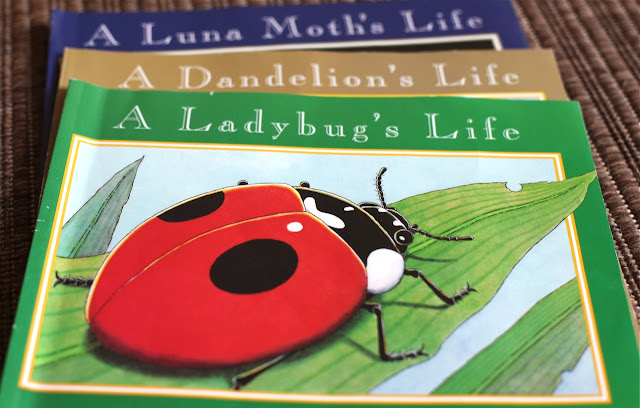Its Friday, and I'm back with more FAQs for bentos... but before I start answering them, I just thought I'd share the most important principle I've learnt while trying to make meals look good for the boy. While I do get that sense of satisfaction after making a cute-looking lunchbox, it should always be nutrition over aesthetics.
Junior J is very sensitive to MSG, and we are also rather wary of preserved/processed meats. So I usually try not to use pre-mixed pastes or sauces for him (save for stuff like soy sauce and sometimes a lil oyster sauce), and I try to add less salt for him. He doesn't really eat sausages (but these are really versatile and convenient for lunchboxes, and many bento books feature them), so I try not to give him those, and I try to limit ham as well. But we do give him cheese. He's not fond of meat, so I do give him minced pork/beef, but we're lucky in the sense that he eats most vegetables, including salad.
So here's my list of commonly used ingredients that I usually have at hand in the kitchen:
Carbohydrates:
- Sweet potatoes: I prefer these over normal potatoes because of the nutrition content (plus I have to steam some for baby J anyway!). They're really great when mashed cos you can make all sorts of shapes, and they come in various colours:

- Bread: This a great for lunchboxes that are brought out (think tuna sandwiches or egg mayo sandwiches), since pasta doesn't taste so great when its cold. On busy days, I just make the boy a sandwich and use a sandwich cutter to make it look a little more interesting:
- Pasta: We sometimes buy stuffed pasta (eg. ravioli or tortelloni) from the farmer's market, since its a convenient way to add protein into a meal. The nice thing about pasta is that it comes in all sorts of shapes and sizes, so a simple chicken soup with some alphabet pasta may be just the thing for a kid learning his alphabet!
 |
| You can make nests out of spaghetti! |
- Rice: Of course you have to include this for our Asian diet. (I'm excluding asian noodles for now since its not readily available in my case!) I wish I could say we are eating brown rice, but Junior J isn't fond of it, so we're sticking to white for now. Rice is really versatile since there are tonnes of rice molds out there that you can use to make various shapes, and you can colour rice using natural colourings like sweet potato and spinach. Long-grained rice also works (no need to get the Japanese short-grained version), just be sure to add more water to make the rice more sticky. Right now, we only have a star-shaped rice mold, so I've been experimenting with using various containers to get different shapes, or sometimes I just try using my hands! :p
 |
| My pathetic attempt at making a turkey! |
Protein (and fats):- Eggs: This is by far my favourite way of introducing protein into Junior J's diet (steamed fish used to be a hot second on the list, but over here fish is expensive and its mainly salmon, so we don't eat so much fish for now). He loves it in all forms, be it sunny-side up, hard-boiled, half-boiled or in an omelette.
- Cheese: The boy loves cheese so I include it in his omelettes and sandwiches, or add it grated in pasta sauces. Hard cheeses like emmental (which we prefer since its less salty than cheddar) are also great for adding decorations (I love how they add that extra splash of cheery yellow!), since they cut well with food cutters. Cream cheese is also great for making dips/spreads.
- Meat: Usually Junior J gets chicken/beef/pork that has been cooked in soups or stews (ie quite soft), or minced meat in sauces. I've not mastered stir-fries yet... so I can't really say much about these!
Fruits and vegetables:These are by far the best way of introducing colour into bento. Salads are great (eg. cucumber slices, lettuce and baby spinach) but some kids won't eat raw greens, and these usually get soggy in a lunchbox. Good veggies that won't wilt in Singapore's hot weather would include:
- Beans, peas (which are great for protein too) and cauliflower:
 |
| A hermit crab digging in the sand (minced pork) amidst coral and seaweed. |
- Broccoli: This is versatile since you can make trees and greenery out of them.
 |
| Ravioli stuffed with ricotta and spinach, in tomato mushroom sauce. |
- Carrots: Which are great for kids that run away at the sight of anything green on their plates. Plus, they can be cut using food cutters too (sweet potato tends to be softer and may fall apart).
 |
The flower and butterfly were made using carrot slices,
while the mushroom was made of rice and sweet potato mash. |
- Seaweed: I find this one really useful for decorating food, since you can cut eyes and little details (there are punches that can help you cut out tiny details, but I don't have those, so I use a kitchen scissors). Plus they are a great source of iodine!
For fruit, anything goes really! But those that don't require cutting might last a little longer, compared to stuff like papaya that might get mushy. Our favourites include:
- Strawberries and blueberries, which last longer out than raspberries and blackberries:
- Cherries and cherry tomatoes, and apple slices:
So all in all, just ensure you have a balance of carbs, proteins and fruit/veggies in the meal, pay attention to colours, and have fun!




























































